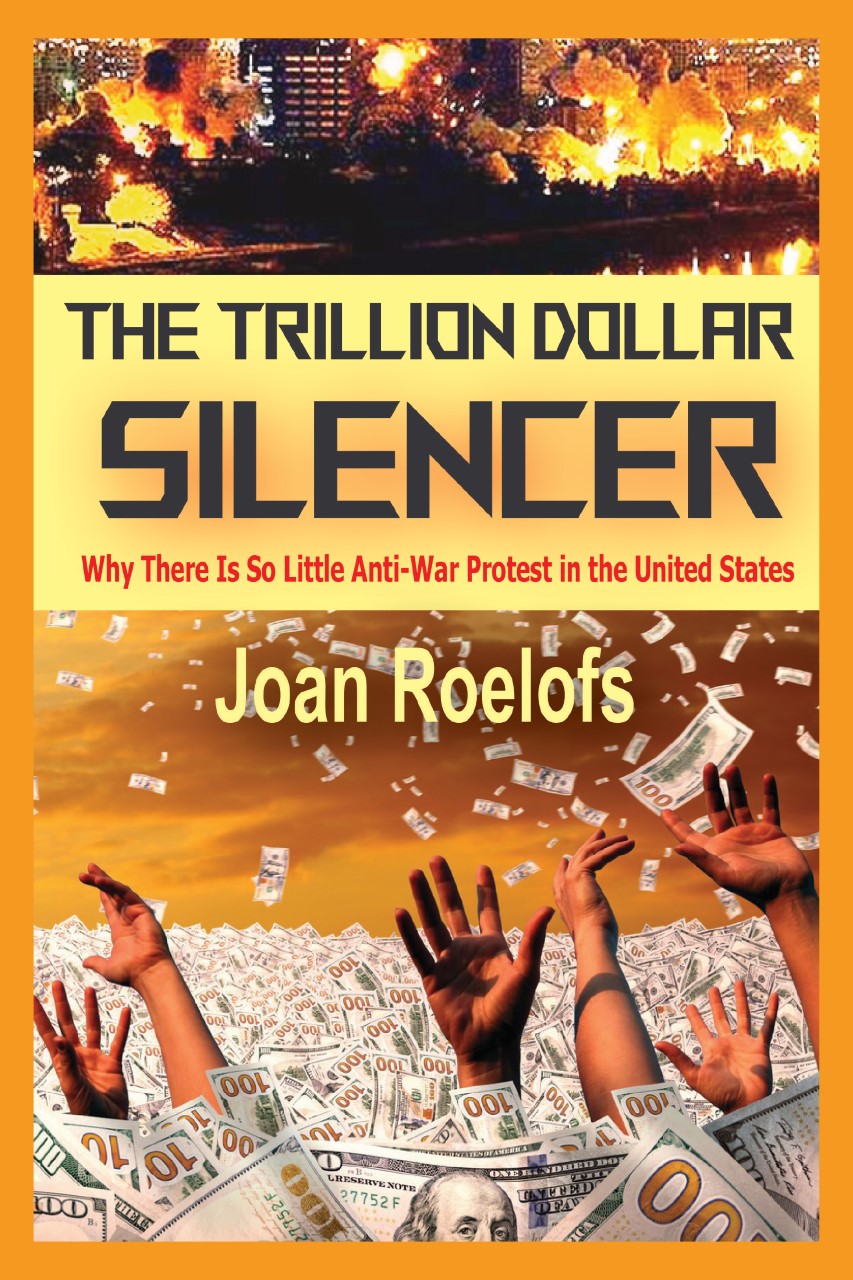
Subscribe to continue reading
Subscribe to get access to the rest of this post and other subscriber-only content.


Subscribe to get access to the rest of this post and other subscriber-only content.
Monday March 6

THE TRILLION DOLLAR SILENCER: Why There Is So Little Anti-War Protest in the United States
Joan Roelofs
Clarity Press http://www.claritypress.com
Ebook $20.00 – Paper $27.95
HOW MILITARY SPENDING INFESTS CIVIL SOCIETY SECTORS
The Trillion Dollar Silencer investigates the astounding lack of popular protest at the death and destruction that the military industrial complex is inflicting on people, nations, and the environment, and its budget-draining costs. Where is the antiwar protest by progressives, libertarians, environmentalists, civil rights advocates, academics, clergy, community volunteers, artists, et al? This book focuses on how military largesse infests such public sectors’ interests.
“It is perhaps the most fraught question of our time, whatever happened to the anti-war movement? In this provocative and illuminating book, Joan Roelofs penetrates deep into the inner-workings of the vast political economy of war-making, revealing how the arms cartel has consolidated its power, captured our political system, infiltrated the media and stifled dissent. At a perilous moment in history, Roelofs has given us a call to action, loud and clear enough to awaken our anesthetized consciences.” JEFFREY ST CLAIR, Editor of CounterPunch, Author, Grand Theft Pentagon
“The Trillion Dollar Silencer is a masterful primer on an institution – the United States military — that has literally thousands of facets and functions, and about a thousand billion dollars each year to support its role in preparing for and making war around the world. Rich in explanatory images, charts and maps, the pieces of the puzzle that Joan Roelofs identifies are so many and so complex that even the most informed readers will learn something in every chapter. The book’s central question is how the military industrial complex has been able to acquire so many taxpayer dollars year after year and so much cultural assent to its overwrought, violent mission. The answers she gives will help us to reverse our otherwise continuing deadly and expensive course.” CATHARINE LUTZ, Professor Emerita of Anthropology and International Studies, Co-Director, Costs of War Project, Brown University
“The world’s leading weapons dealer and warmaker, the United States, may also have the least popular resistance to militarism. Why the quiet acceptance? This book helps us to become aware that darn near every inch of U.S. society has been infiltrated by the normalization or celebration of war preparations, that essentially our culture, not just our elected officials, has been bought. This book also provides guidance on what we can do about it.” DAVID SWANSON, Executive Director of World Beyond War and author of War Is A Lie
“Why is there so much acceptance of, and so little protest against, our war policies and all the other tactics of subversion employed by the military-intelligence-industrial complex to sustain hegemony. While the peace movement answers this question with reference to propaganda, fear and distractions, this book focuses on the enormity of the war machine’s penetration into numerous aspects of civilian life. The sections in the book on this penetration into philanthropy, nonprofit organizations and NGO’s are probably the most eye-popping portions of the book. Roelofs shows that the real goal is the construction of “the normal” in ways functional to the interests of the Pentagon, unconventional warfare institutions and military contractors.” PAUL SHANNON, Executive Committee of Mass[achusetts] Peace Action
Video of CodePink webinar: The Military Industrial Complex at Ground Level
Some notes on the map: Contractors are those with DoD contracts issued from 2018-2021, and only a selection of these are included. There are thousands in the database usaspending.gov (from 2008-present) in NH. For Cheshire County alone, there were 1,370 contracts (many to the same leading businesses) from 2008-present. From 2008-2010, C&S Wholesale Grocers was the largest recipient of DoD funds in Keene; now it is Timken. Cities and towns receiving contracts have not been included.
Only one “town square” is noted, with a home-made icon, but there are many more. Note that even closed bases are economic hubs, as “remediation” goes on forever, with crews needing motels, Targets, burgers, etc.
What would be difficult to include were investments, philanthropy, recruiting stations, monuments, parades, and others. Almost all of us are part of it in some way. My bank belongs to the weapons exporting consortium; others have children in MIC sponsored robotics programs.
The legend is in the ocean.
The factory symbol was used for all businesses, even if their products were construction or information.
Amazon has incorrect information in two places about this book. It is in print and available at a normal price. The publisher is Rowman and Littlefield. See information in listing.